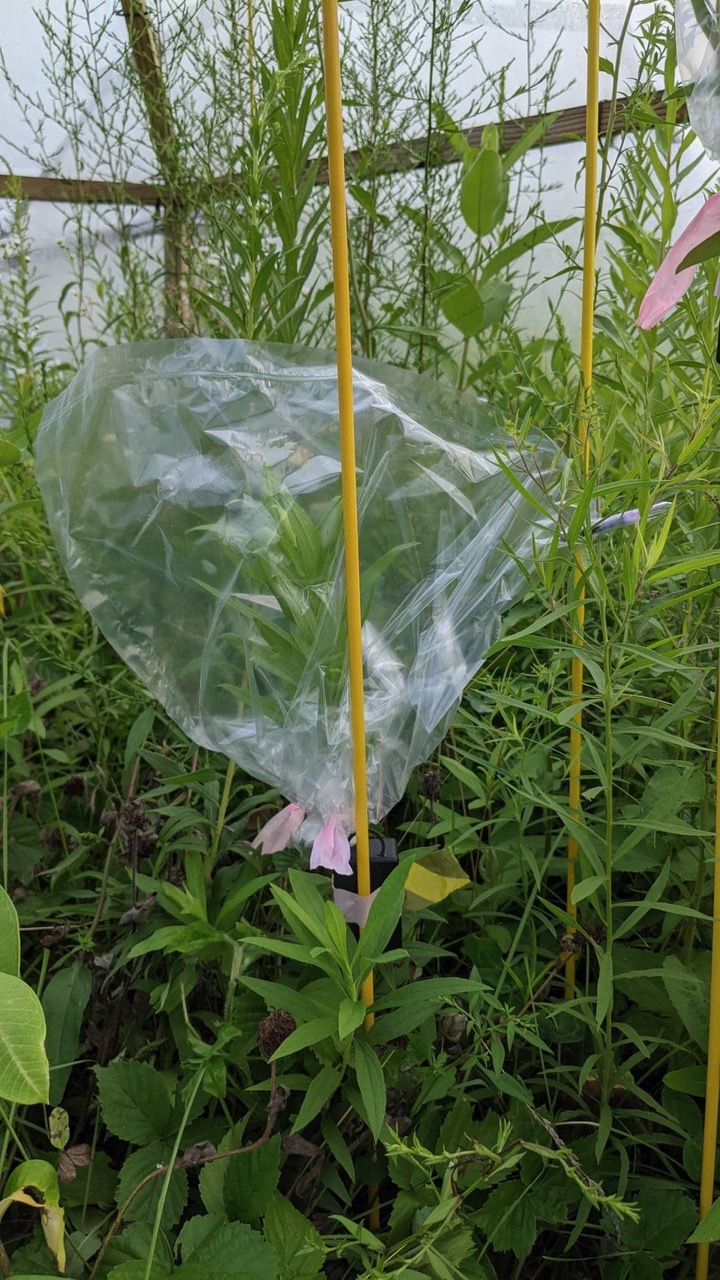Would a rose in a warming world smell as sweet?
Though you might not be able to see it with the naked eye, plants are constantly interacting with their environment. One way they do this is through the release of volatile organic compounds (VOCs) – chemical signals that help them communicate and react to both living and non-living factors around them. These VOCs form the foundation of plant-to-plant communication and plant-insect interactions, making them a vital part of healthy ecosystems.

Climate change is expected to change plant VOCs, potentially disrupting plant signaling. Past studies have shown that drought and warming can affect VOC emissions, but we still do not know how specific species respond or which compounds are most affected.
New research from the KBS LTER, led by former Michigan State University (MSU) Integrative Biology (IBIO), and Ecology, Evolution, and Behavior (EEB) PhD student Kara Dobson, explored this question using the Rainfall Exclusion Experiment (REX) – a manipulation study within the Main Cropping System Experiment (MCSE) established in 2021.
REX is uniquely able to test the simultaneous effects of the two largest changes expected under future climate change in Michigan – warmer temperatures, and increasingly variable rainfall. The study focused on VOCs released by tall goldenrod (Solidago altissima) under varying drought and warming conditions to see how these stressors influence both the abundance and composition of VOC emissions.
Read the full story on the KBS LTER blog.



